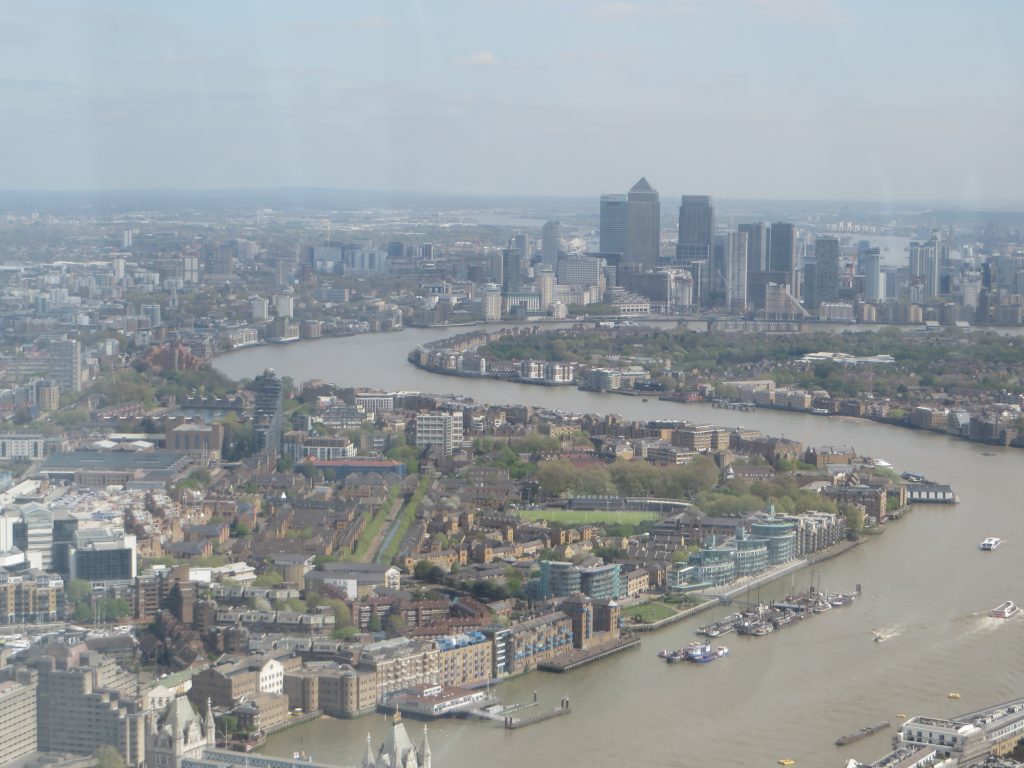The old river in its broad reach rested unruffled at the decline of day, after ages of good service done to the race that peopled its banks, spread out in the tranquil dignity of a water way leading to the uttermost ends of the earth.
Joseph Conrad – Heart of Darkness
I was a student in London in the 1970s. On dark, still nights, lying in bed in my flat in Whitechapel, I would often hear the horns of ships and barges edging their way through the Pool of London. I always associate that sound with East London: horns calling out above the constant hum of traffic as if seeking to remind all who hear that they, the coastal and ocean-going craft and the river they ply their trade upon, are the very reason that the city exists.
I live on the edge of a small town in Wales now and the sea is quite a long way off, so the only ships’ horns I hear now are those that haunt my dreams. But even here, close to open countryside, one can always hear the background rumble of traffic from the garden. Until recently, at least.
One of the few positive spin-offs from the current COVID-19 crisis is the fact that there is far less traffic on the roads. Going out for my early morning run every other day or just taking a walk at other times I see very few cars and lorries. As I sit at my desk now, looking out over the garden, all I can hear is birdsong.
There are far fewer planes flying overhead too. We live on flight paths for Manchester and Liverpool airports and would normally see and hear scores of aircraft each day. The huge Beluga transport plane, shuttling between Airbus at Broughton and Toulouse each day, normally flies over our house too. But it does so no longer.
Worldwide air pollution levels are plummeting too. People are driving and flying far less. Sadly, this is probably only a temporary phenomenon. But it does give us all a foretaste of the kind of world we need to create if we are to avert Earth’s impending climate disaster.
Picture of River Thames from The Shard, ©Bobby Seal


These blogs are great, Bobby. Thanks for all the connections
Thanks so much, Liz. I hope you and the boys (young men, I should say) are keeping well.
When I reread H of D for teaching purposes a year or so ago I’d forgotten the long introductory section with its depiction of the old friends passing the time yarning on a ‘cruising yawl’ moored in the Thames, waiting for the tide to turn. There are vivid descriptions of this English river – your quotation at the top is from this early section about the Thames, not the Congo. The symbolic parallels are palpable. “And this also…has been one of the dark places of the earth,” says Marlow cryptically. It’s not clear which place he’s referring to; could be London or that alternative heart of darkness in central Africa. And yes, we notice the drop in air and noise pollution even here in semi-rural Cornwall. As I did my morning walk today I passed a blackbird on the lane; it was examining the verge, looking for food presumably. It made not attempt to move or fly away from me. Just looked inquisitively at me. I’d like to think there was a look of complicity passed between us, but that would be fanciful.
I last read Heart of Darkness several years ago. Looking back, it’s slightly strange that the short London section of the book affected me even more profoundly than the rest of it.